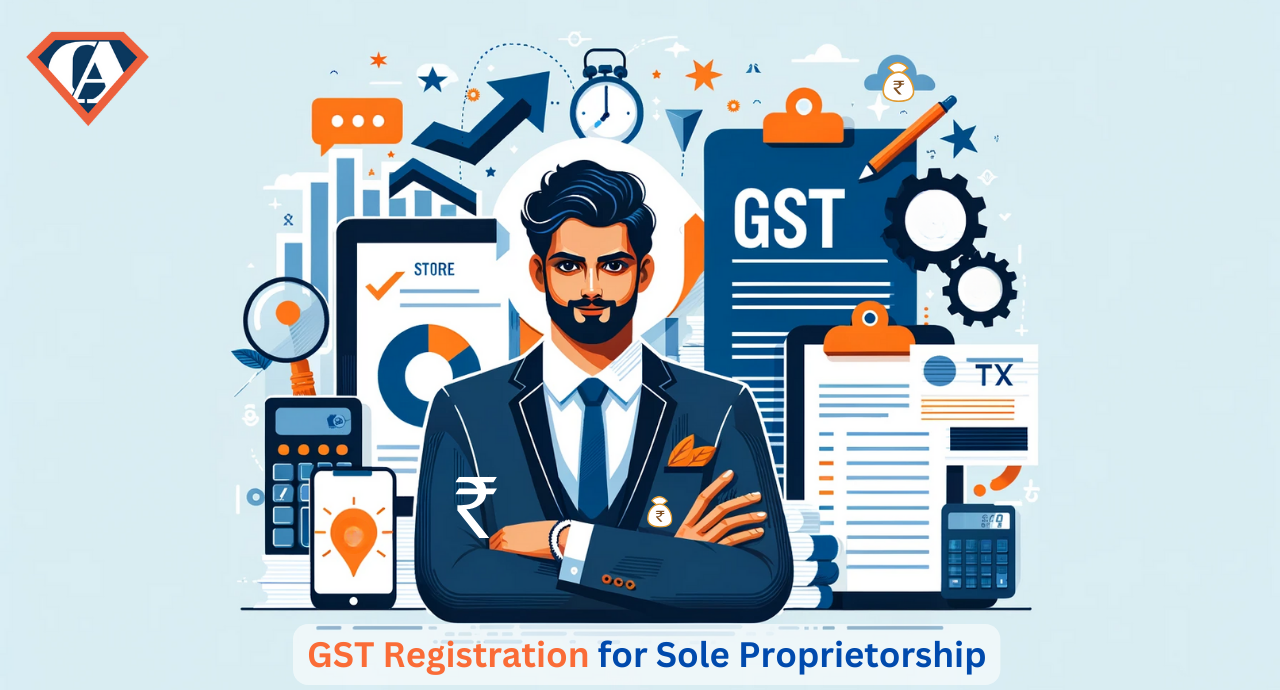How to Navigate Singapore GST Registration for Your Business
How to Navigate Singapore GST Registration for Your Business
Blog Article
Browsing the Intricacies of GST Registration: Expert Tips and Ideal Practices for Smoother Conformity
From analyzing enrollment needs to utilizing technological tools for structured processes, the journey towards smoother GST conformity is complex and nuanced. Stay tuned to uncover essential techniques and understandings that can aid organizations guide with the complexities of GST registration with finesse and self-confidence.
Recognizing GST Enrollment Needs

In enhancement to turn over thresholds, businesses participating in interstate sales or offering taxed solutions may likewise be required to register for GST, even if their turn over is listed below the suggested limitation (Singapore GST Registration). Recognizing these limits and needs is important to avoid fines and make certain smooth operations within the legal structure
Additionally, services should collect and prepare the essential paperwork, such as proof of identification, address, service incorporation, and financial institution account details, before launching the GST enrollment process. Stopping working to give precise details or meet the registration deadlines can lead to penalties or various other lawful consequences. Companies need to remain educated about the certain GST registration requirements applicable to their procedures to preserve conformity and stay clear of prospective concerns.
Organizing Vital Documentation
Services getting started on the GST enrollment procedure need to thoroughly compile and arrange the crucial documents required for submission. The key documents usually needed for GST registration include proof of company registration or address, identification and consolidation proofs of business owners or companions, savings account details, evidence of principal business, and authorization types. Making sure that these papers are conveniently available and arranged can enhance the registration process and avoid denials or hold-ups.
To efficiently arrange vital paperwork, businesses must develop a central system for saving and classifying the needed documentation (Singapore GST Registration). Using electronic storage options can help keep very easy access and make certain that papers are securely stored. In addition, developing a checklist of all essential files can act as a practical tool to track what has been collected and what is still required for submission

Leveraging Innovation for Performance
Enhancing functional efficiency through technological integration is paramount for modern-day companies browsing the complexities of GST registration. One of the essential ways modern technology can aid in GST enrollment is with the usage of automated software program options.
In addition, modern technology can promote smooth communication with tax authorities. On-line sites and communication tools make it possible for services to send files, settle queries, and obtain updates in a more effective fashion. This not just quickens the enrollment procedure yet also assists in keeping transparent and reputable interaction with the pertinent authorities.
Moreover, cloud-based storage options offer a protected platform for organizations to shop and gain access to their financial information, ensuring compliance with GST record-keeping requirements. By systematizing data storage space and automating processes, businesses can improve their overall efficiency and precision in GST registration procedures.
Proactive Conformity Monitoring

To ensure effective proactive conformity tracking, businesses need to develop durable internal controls, conduct routine audits, and take advantage of automation tools for real-time monitoring of GST transactions. Normal training sessions for workers on GST conformity demands can additionally help in creating a culture of conformity within the company. Additionally, involving with tax experts or specialists can supply beneficial insights and advice on navigating complex GST laws.
Engaging With Specialist Consultants
Engaging seasoned tax professionals can dramatically reinforce a firm's understanding and compliance with elaborate GST guidelines. Expert experts bring a wide range of understanding and experience to the table, aiding companies browse the intricacies of GST registration effortlessly. By leveraging their competence, firms can ensure precise filings, decrease the threat of mistakes, and remain current with the most up to date regulative adjustments.
When engaging with professional professionals, it is important to select experts with a solid track record in GST compliance (Singapore GST Registration). Try to find professionals that have a deep understanding of the pertinent legislations and guidelines, in addition to experience collaborating with organizations in your industry. Efficient communication is crucial in this collaboration, so see to it to clearly define your expectations and develop regular touchpoints to talk about progress and attend to any kind of problems
In addition, specialist specialists can supply valuable understandings and suggestions on enhancing your tax technique, recognizing possible cost-saving possibilities, and improving your conformity processes. In general, purchasing professional working as a consultant services can go a long way in ensuring smoother GST conformity and preventing expensive errors.
Conclusion
In conclusion, browsing the her explanation intricacies of GST registration requires a comprehensive understanding of the requirements, company of necessary paperwork, leveraging innovation for efficiency, proactive conformity tracking, and interaction with professional consultants. By adhering to these ideal techniques, organizations can make sure smoother compliance with GST regulations and avoid prospective penalties or fines. It is vital to stay educated, positive, and attentive in handling GST enrollment to preserve conformity and maintain financial stability.
To ensure conformity with tax obligation regulations, organizations should extensively comprehend the complex requirements for GST registration. Item and Services Tax Obligation (GST) is a value-added tax imposed on many items and services in a nation, making it crucial for companies to sign up for GST to Continue avoid lawful repercussions.In addition, organizations must collect and prepare the required documentation, such as proof of identification, address, business consolidation, and financial institution account information, before launching the GST registration procedure. Businesses ought to remain notified about the certain GST enrollment demands go to this website applicable to their procedures to maintain compliance and prevent possible concerns.
The essential records generally needed for GST enrollment consist of evidence of business registration or consolidation, identification and address evidence of the organization proprietors or companions, financial institution account information, evidence of major area of organization, and consent forms.
Report this page